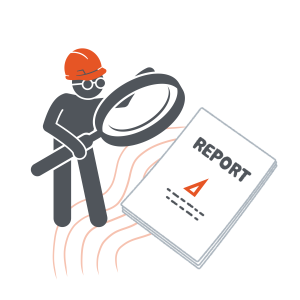How New Jersey Condominium Reserve Studies Can Prevent a Florida-Style Crisis
Florida’s condominium market is experiencing a crisis that’s turning once-desirable communities into high-cost burdens for owners. Exploding insurance premiums, unplanned special assessments, and depreciating property values have created a rush to sell—and a warning sign for condo owners elsewhere.
In New Jersey, the same risks are quietly forming. The good news is that proactive planning through Reserve Studies can help associations avoid the mistakes being made in the Sunshine State.
What Happened in Florida’s Condo Market?
Florida is home to about 20% of all U.S. condominiums. As buildings aged, many associations failed to keep up with structural maintenance or set aside sufficient reserves. When new state regulations were introduced following the Surfside collapse in 2021, associations suddenly faced expensive repairs and mandatory upgrades.
Many owners saw their monthly costs surge by hundreds of dollars. Lenders began refusing to finance units in older or underfunded buildings. Property values dropped sharply, especially for condos over 30 years old.
Why New Jersey Is at Risk
New Jersey has thousands of aging condominium communities, many built between the 1970s and 1990s. While we don’t face hurricanes like Florida, we do share key risk factors:
-
Rising insurance premiums
-
Aging structural systems
-
Deferred maintenance
-
Limited awareness of true repair costs
State lawmakers have already responded. In 2024, New Jersey passed legislation requiring regular Reserve Studies and structured funding plans for community associations. These steps aim to prevent sudden assessments and keep buildings in good financial and physical condition.
What Is a Reserve Study?
A Reserve Study is a detailed evaluation of a building’s common elements—like roofs, facades, parking areas, HVAC systems—and the costs to repair or replace them over time. It also includes a long-term funding plan to ensure money is available when those components reach the end of their useful life.

In New Jersey, associations must now conduct Reserve Studies at least once every five years and create a 30-year funding plan.
Key Benefits of Reserve Studies for New Jersey Condos
Financial stability
With an accurate Reserve Study, associations can set realistic maintenance budgets and avoid surprise assessments.
Market confidence
Buyers and lenders increasingly scrutinize reserve funds before approving purchases. A well-funded reserve supports property values.
Risk reduction
Early identification of issues helps associations address structural problems before they become safety concerns.
Steps New Jersey Condo Boards Should Take Now
-
Schedule a Reserve Study if your community hasn’t conducted one in the past five years.
-
Work with a licensed reserve specialist, engineer, or architect familiar with local requirements.
-
Review the 30-year capital plan with financial and legal advisors.
-
Communicate the importance of reserve planning to owners to build transparency and support.
-
Budget incrementally to address funding gaps rather than relying on special assessments.
Conclusion
Florida’s condo crisis didn’t happen overnight—it was the result of years of underfunding and delayed maintenance. New Jersey condominium associations have the opportunity to take a different path.
With mandatory Reserve Studies now in place, the focus should shift from compliance to smart planning. Investing in your building’s future today protects its value tomorrow.
If you’re part of a New Jersey condo board, reserve planning isn’t just a legal requirement—it’s a responsibility to your community.
Review the new S2760 structural integrity S3992 law amendment and timeline here.

